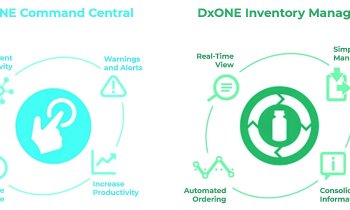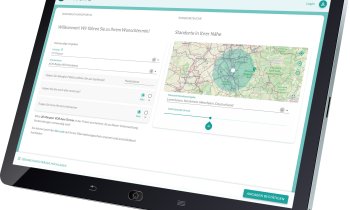Surveillance
Big Data may streamline epidemic control
It’s a race against the clock; every hour counts in efforts to halt the spread of a disease, but identifying anyone with whom the infected patient has had contact is time-consuming, with Contact Officers generally collecting data on paper. Now, however, scientists from the Nigerian Field Epidemiology Laboratory & Training Programme, the Helmholtz Centre for Infection Research, the Hasso Plattner Institute (HPI), Robert Koch Institute and Bernhard Nocht Institute for Tropical Medicine are developing a system to support reporting, communication and management of infectious diseases outbreaks including Ebola, Measles, Avian Flu and Cholera with the help of a mobile app and Big Data technology.
Report:Sascha Keutel

The prototype from the Surveillance and Outbreak Response Management System (SORMAS) is currently being tested in Nigeria. The system was designed to offer real-time and interactive capabilities to manage outbreak management procedures, analyse data and generate reports. ‘SORMAS covers surveillance as well as containment functionalities,’ explains Professor Gérard Krause, head of the Epidemiology Department at Helmholtz Centre for Infection Research and the project coordinator.
Mobile technology
The system supports the different parties involved in epidemic surveillance, e.g. Contact Officers (Cos) who visit those who may have had contact with infected persons. Whilst the COs previously collected data on a hard copy questionnaire, with SORMAS they enter detailed case data directly on to the mobile device and transfer these in real-time to the relevant authorities. The data are stored in a cloud to be accessed by all other authorized participants in the process. ‘Involvement’ is a key issue for the epidemiologists: ‘From the outset, we designed SORMAS to integrate fully into existing national and international information processes and to comply with statutory requirements. We did not want to develop an additional and separate system but provide a tool to make the existing systems more efficient.’
SORMAS is based on in-memory database technology developed at HPI. It combines Big Data technologies with smart applications. Commercially available smartphones and tablet PCs, which can be used even in remote rural areas, are equipped with specialised apps for mobile data collection in the field. In the background, complex processes run on cloud technology working with SAP‘s HANA database structure, which can handle information processes on Big Data level.
Pilot phase ends
After returning from a site visit during the field pilot in Nigeria, Krause reports, ‘fortunately there are no Ebola cases in Nigeria currently. So we had to design a complex virtual environment in which we simulated an Ebola outbreak, but we carried out the simulation under field conditions in the close to 100 localities and staff that would normally have to cope with the outbreak.’
The current funding of this research project from the German Ministry for Research and Education is scheduled for completion soon. Since late August the data has been been evaluated. Based on the results, the project partners will decide whether this approach will be persued for further development and expansion. Summarising his initial impressions, Krause said: ‘SORMAS definitely has an enormeous potential. People in the field want such a system and, as far as the technology is concerned, it’s feasible. The concept offers several advantages compared to other current approaches using mobile devicest.’
PROFILE:
A medical graduate from the University of Mainz, with a research doctorate in tropical hygiene from the University of Heidelberg, Gérard Krause worked as a physician and research associate in tropical hygiene, internal medicine and hospital hygiene in different hospitals and universities. He was epidemic intelligence service officer at the Centres for Disease Control and Prevention in Atlanta, USA, before moving to the Robert Koch Institute (RKI), in 2000, and there became director of the infectious disease epidemiology department (2005-13). In 2011 Dr Krause became chair for infecious disease epidemiology at the Hannover Medical School and head of the epidemiology department at the Helmholtz Centre for Infection Research, Braunschweig.
10.09.2015











